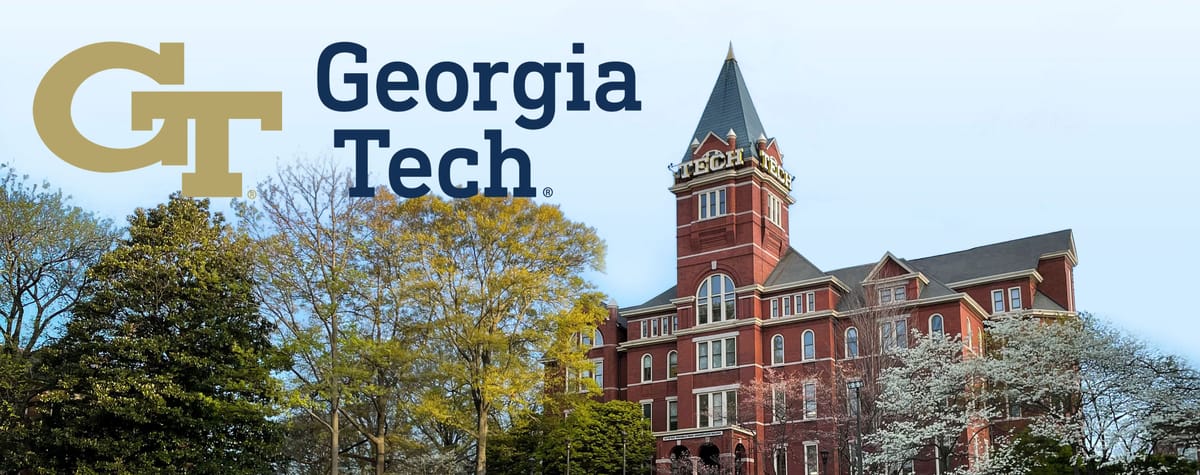My Experience with Georgia Tech OMSA Program Part-2

This post is part of the series that I am writing to reflect on my experiences with the OMSA program.
Part 1 can be found here
The MicroMasters Program
Today I will be writing about Georgia Tech MicroMasters Program in Analytics: Essential Tools and Methods. I have taken this before I apply for the Georgia Tech OMSA program.
The MicroMasters Program consists of three courses which are part of the OMSA curriculum.
- Intro to Analytics Modeling (ISYE 6501)
- Data Analytics in Business (MGT 6203)
- Computing for Data Analysis (CSE 6040)
The content of the courses is the same as what you would experience in the OMSA program. ISYE 6501 and CSE 6040 are considered Foundational Core courses and MGT 6203 is an Advanced Core course. You can audit the courses (which means you can only watch the lecture videos without taking on quizzes/exams) on EDX or you can pay the full amount to complete them.
You can take these courses in any order and can take more than one course at a time. I didn't know much in the beginning so I took 2 courses (MGT 6203 and CSE 6040) in one period equivalent to a semester and ISYE 6501 later. I managed to complete the program at the end of 2019.
MicroMasters is a good program especially if you are keen on joining the OMSA program but unsure about what to expect. You don't even need to pay full fees if you just want to experience the lectures and learning experience that you would expect to see in the OMSA program. You can audit the course content and see if that suits you. Another good thing about the MicroMasters is that if you manage to get good grades in the courses, you can later opt out of these courses if you join the OMSA later. There is no official cut-off point for grades but you should aim to achieve above 85 points to be safe. Lastly, if you did well in the MicroMasters program, it'll greatly help with your application to OMSA as this can be a proof that you're suitable for the OMSA program (which is exactly what I did by mentioning this in my application essay and attaching the certificates as part of my education qualifications).
ISYE 6501 Review
ISYE 6501 is taught by Professor Dr Joel Sokol and it is a great course to introduce the concepts in the OMSA program. The material consists of learning different Machine Learning Models and Case Discussions. It will also teach you to program in R for some homework and you need to take exams in multiple-choice format. I remember the questions being a bit tricky but not too difficult if you understand the concepts. There were no assignments or group projects when I did this course at the time but it may have changed.
I would give a rating of
- 5/5 for the materials
- 5/5 for the delivery (Dr Sokol is really great!)
- 3/5 for the effort (I spent about 3-4 hours per week)
MGT 6203 Review
As the title says, it is a Business course. The content is similar to ISYE 6501 when I took it, but by now I believe it may have been updated. So it is a good one to take together with ISYE 6501 (I should have known at the time). This course used R programming a lot in lectures and homework. I also remembered that I needed to memorise a lot for this course as it has four closed-book exams.
Quizlet is your friend for this course as there is a good number of study sets/flashcards to prepare.
I would give a rating of
- 4/5 for the materials (Personally I still find the materials useful from time to time to review model outputs from R)
- 3/5 for the delivery
- 2/5 for the effort (I spent about 3 hours per week)
CSE 6040 Review
This was by far the toughest course for me. I didn't have any programming background before doing this course and I had to learn everything on the fly. This is more like a Python programming course. So your effort will vary based on your knowledge of Python. If you know Python, you can spend 2-3 hours per week and ace it. The great thing about this course is that homework assignments alone count for 50% of the total grade! So if you managed to get full points for the homework, you can pass midterms (there are two) and finals with acceptable grades and still achieve an A!I also like the fact that Professor Richard (Rich) Vuduc and his team of TAs are so helpful during office hours. They pretty much helped to troubleshoot/debug my codes. The homework and exams have something called an auto-grader where you can write a code and it will provide a pass/fail. So you can keep trying until it passes (and what a relief it gives when your code passes!) I would give a rating of
- 5/5 for the materials (Great notebooks with explanations that I can still use to learn Python from time to time)
- 4/5 for the delivery (Initial materials are great but once you are the halfway through the course, it ramps up very quickly into Linear Algebra & Calculus)
- 5/5 for the effort (Since I have no Python background, I had to spend almost 6-7 hours per week)
Overall, I enjoyed my experience with the MicroMasters program. I would consider it as a great value for money and helped me gain good experience with working with different tools even if I am not applying for the OMSA program.